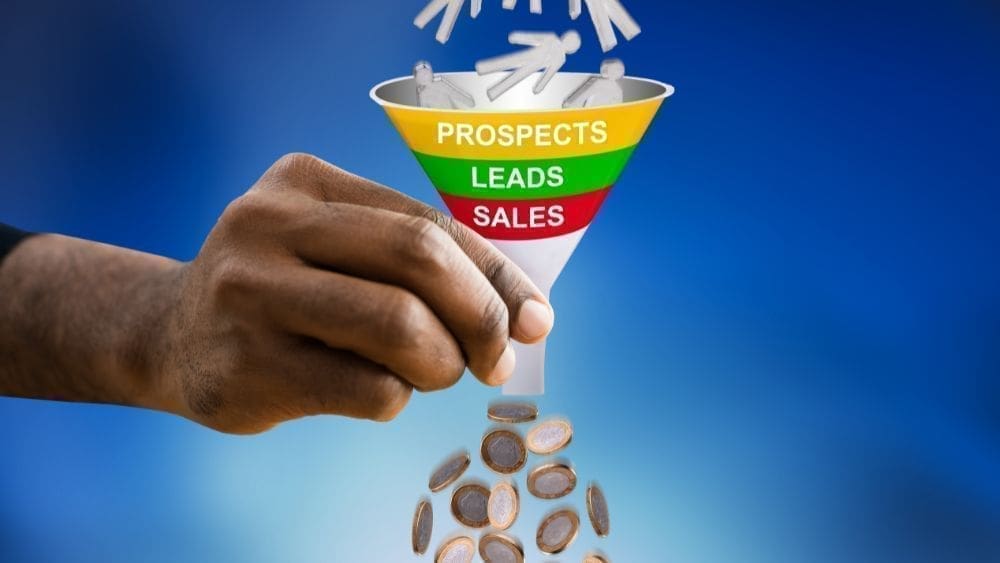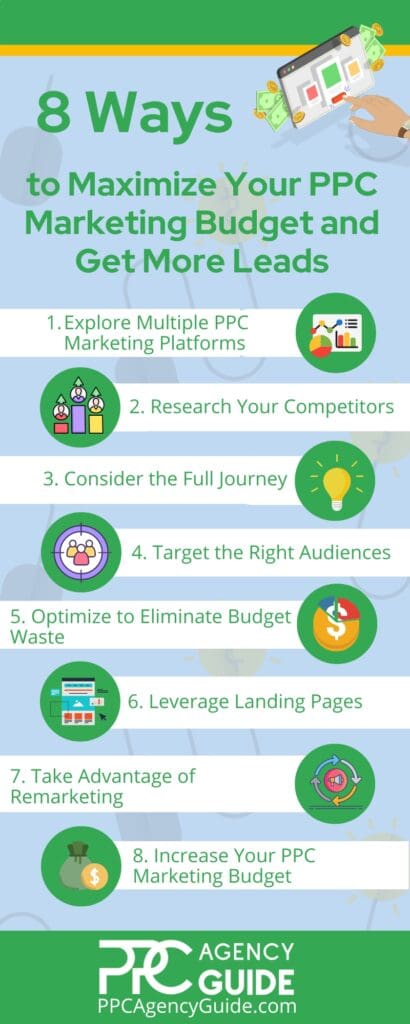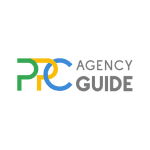
Trying to get more leads from your PPC marketing budget? Most advice you’ll find online relates to locking in an immediate sale. Lead generation is a different thing entirely. The sales cycle is typically longer. The intent is different. The mindset of your client is different. This means that many of the PPC strategies that work in e-commerce aren’t helpful when you’re trying to squeeze more leads out of your budget.
Not to worry. On this page, we’ll walk you through tips to optimize your PPC marketing campaigns for leads so your pipeline stays full, and your budget goes further.
Explore Multiple PPC Marketing Platforms
Most people start with Google Ads because it’s the biggest and best-known platform. However, the average cost per lead (CPL) on the platform is $40.74, as WordStream reports. That means the typical advertiser spends around $41 to generate a single lead. Or, you can think of it this way, if a business has a $1,000 budget, it can expect to generate just shy of 25 leads.
Other platforms, such as Microsoft, Facebook, or LinkedIn, will likely produce more cost-effective results. For instance, Facebook presently has a CPL of $8.27, per revealbot. That means the same business with the same $1,000 budget would generate 121 leads.
Before you move your entire budget to any of the other PPC marketing platforms, though, bear in mind that each network shines in its own way and attracts a unique audience. A lower CPL, in general, doesn’t mean you’ll have a lower CPL on the platform or that you’ll generate any leads at all. It’s better to divert some of your budget to one alternate network at a time as a test first. That way, you’ll still get some leads even if the new network is a flop.
Research Your Competitors
Keep your eyes peeled for display ads as you browse the web. Run a search for your core advertising keywords to see who shows up in search ads. If you see any key players missing, visit their website and social media pages to see if you can get their remarketing ads to trigger. Then, go through each PPC journey as if you were a customer. Make a note of:
- Products: Similarities and differences between yours and theirs.
- Pricing: The pricing structure used and how it stacks up to yours, as well as when you’re introduced to pricing.
- Ad Copy: Watch the language being used and check if they’re leaving any gaps in messaging that your brand can fill.
- Landing Pages: Make a note of the flow or any gaps they leave, such as failure to build trust or a lack of a compelling offer.
Consider the Full Journey
People in the marketing world often talk about intent, or what action the user wants to complete when running a search. If you’re running a PPC campaign for e-commerce, you’re looking for signs that someone is ready to buy. That’s not always the case if you’re trying to generate leads.
For instance, someone entering the top of your funnel might be looking for information about a problem they have or researching potential solutions. They’re not ready to sign up with you, but if you nurture them well, you may be able to make them a client eventually. You can use PPC ads for this, but you’ll probably focus on providing them with information. Things like boosted posts, calculators, and checklists come in here. The goal is to provide them with information so unique and helpful that they’re willing to part with their information to get it or to provide them with the information as a courtesy, simply to introduce your brand to them.
In later stages, they’ll be comparing options. PPC marketing can work here too. For instance, your ads might offer comparison sheets or guides on what to look for when selecting. Demos, quotes, and similar approaches may also work, but those usually work best for people who are ready to purchase.
Target the Right Audience

Targeting the right audience and considering the entire journey go hand-in-hand. In a broad sense, you should use customer personas to determine the best networks and most compelling offers. Each platform offers slightly different targeting options, but you can generally use the data you already have to target by interest, demographics, and location. You can also schedule ads to run when your audience is most likely to take action.
At the same time, targeting must also be considered when it comes to the customer journey. Because you probably are working with a longer sales cycle, it’s essential to match your keywords with the right stage of the journey, then create an offer and ad strategy that aligns with it.
Optimize to Eliminate Budget Waste
Ongoing optimization is a crucial component of maximizing your PPC marketing budget. Your analytics will provide a wealth of information once your ads are up and running. Use the data to prune out things that aren’t working so more of your budget goes lead generation.
- Negative Keywords: Watch your search terms report for phrases that aren’t a good match or don’t produce leads. Add these to your campaigns as negative keywords so your budget goes to the keywords that deliver leads.
- Low-Performing Keywords and Ad Groups: Keep an eye out for keywords and ad groups that don’t produce leads or don’t do so cost-effectively. Pause them to preserve your budget so that you can focus on high-performing keywords and ad groups.
Leverage Landing Pages
More than 40 percent of businesses link their PPC ads to their homepage, according to HubSpot. The problem is that landing pages don’t really convert. They’re not designed to. Moreover, the homepage rarely aligns with the person’s search. They leave when they can’t find what they’re looking for right away.
Build landing pages for each ad group that aligns with the person’s intent and ad copy. Keep it simple and focused on the goal they want to achieve.
Take Advantage of Remarketing
Lead generation, especially in B2B markets, is a longer process. Your typical lead isn’t going to hand over their information the first time they meet your brand unless you offer them something they really want that they can’t get anywhere else. Chances are, you will have to connect with them repeatedly before they agree to talk to anyone at your company.
Remarketing ads can be a massive help in this department. Instead of having someone visit your website once and then never connect with you again, remarketing allows you to reach out to that person on other sites across the net afterward.
There are many approaches to remarketing. For instance, you can use remarketing ads to offer someone a free gift or discount for returning and getting their quote or demo. You might also leverage it to nudge them to the next stage of the journey.
Increase Your PPC Marketing Budget
It may sound counter-intuitive to increase your budget when you’re trying to maximize your budget, but remember that PPC is an investment. Businesses generate $2 for each $1 spent on average, per TechJury.
Oftentimes, brands limit how often they’re displayed by having a budget that’s too low or by setting very low cost-per-click (CPC) limits. If you’re not getting maximum visibility, it may be time to increase your budget.
Hire a PPC Marketing Expert to Boost Your Leads and Maximize Your Budget
Maximizing your PPC marketing budget requires a twofold approach: following best practices during the setup and performing ongoing maintenance. If you’re struggling in either of these areas or just aren’t getting the number of leads you expect from your paid ads, it’s better to work with an experienced PPC agency. Request a complimentary consultation to learn more or get started.



















